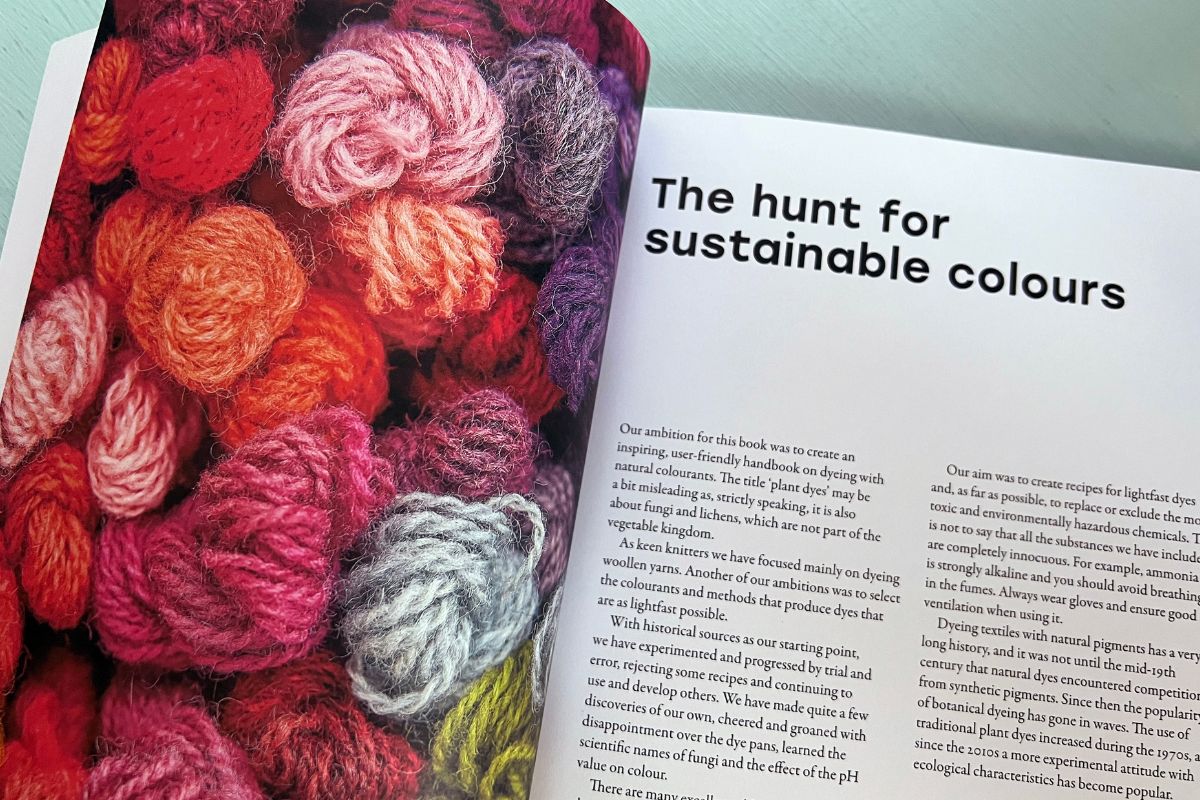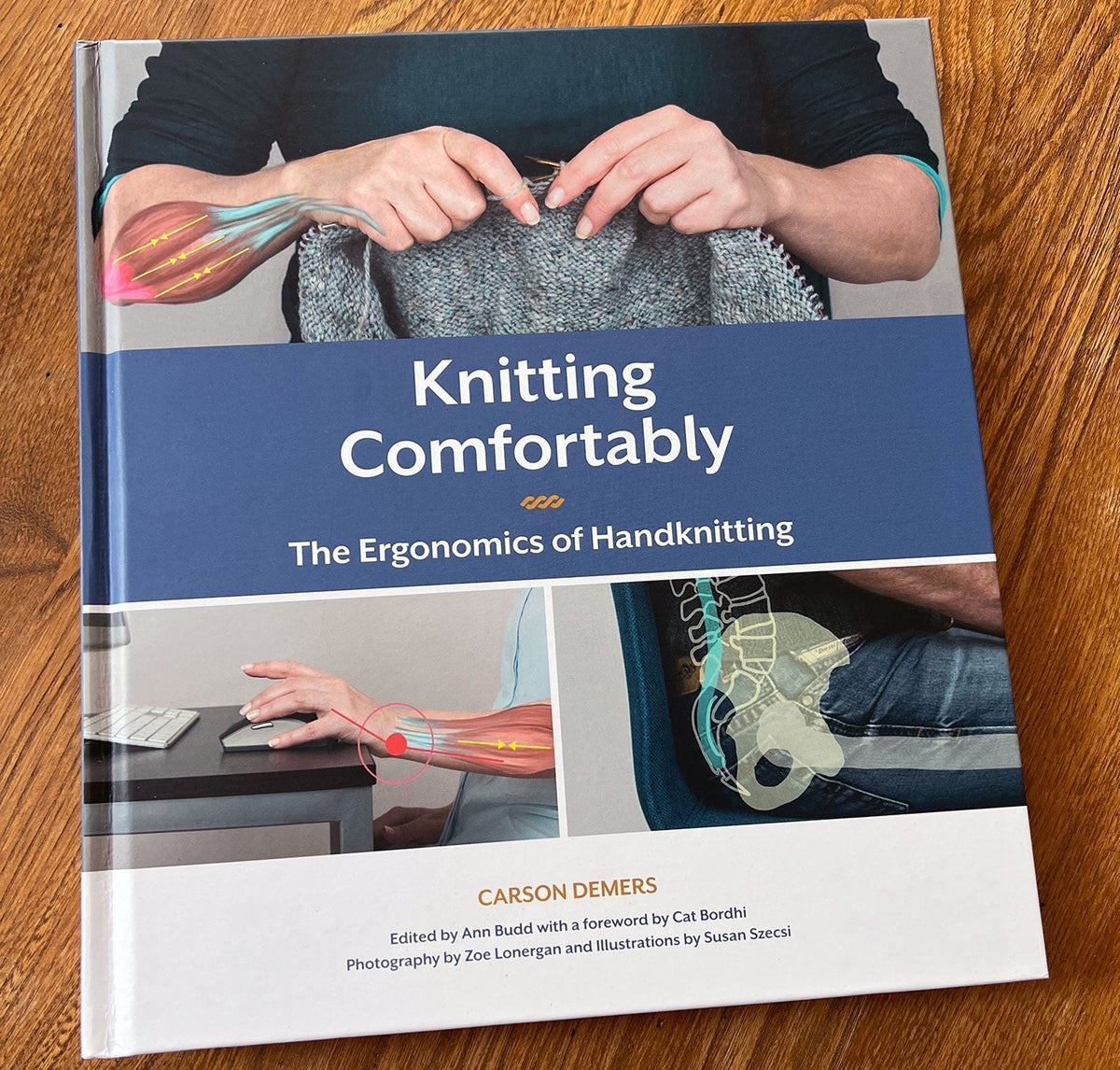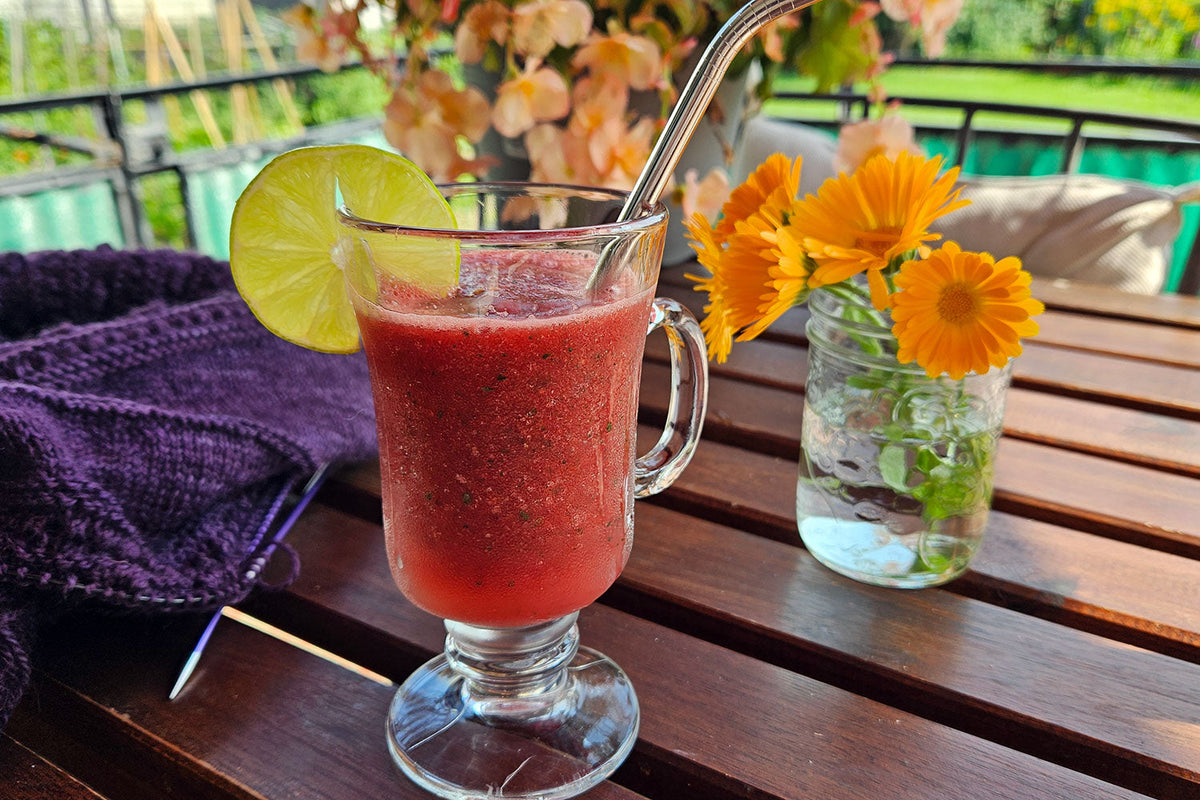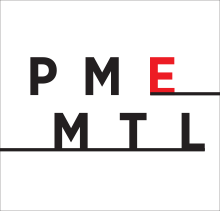Choosing a Natural Dye Book

Have you ever tried dyeing your own yarn using natural colorants? Are you now looking for more inspiration? Or maybe you’ve always been curious, and are wondering where to begin. Below, we’ve introduced four books that could be exactly what you’re looking for :
1) Natural Yarn Dyes: 25 Vibrant & Sustainable Recipes
by Anna Bauer & Eva Zethraeus

This accessible and visually engaging how-to book (paperback, 96 pages, English edition published in 2025) offers 25 step‑by‑step recipes for creating richly hued yarn colours using plants, fungi, and lichen, while emphasizing eco‑friendly, safe processes and colourfast results. It was originally released in Swedish in 2021 (Färga garn och sticka). The authors start with an introduction covering tools, safety, mordanting, light‑ and wash‑fastness, and dye‑bath preparation.
Each recipe includes clear instructions, dyed sample photos, and notes on reusing dye baths, overdyeing, aftercare, and sustainable practices. The book also includes a glossary, suggestions for further reading, and some downloadable knitting patterns, making it a practical, inspiring resource for fibre artists who want to responsibly explore natural dyeing.

Who is it for?
This is a great manual for first-time dyers of wool yarn; it has simple, structured recipes and essential safety and mordanting information. These recipes are mostly based on materials that can be easily purchased. The feel of the book is clean and practical, and the writing is encouraging and to-the-point. This is the most approachable—and affordable—of the four books covered in this post.
2) The Colours of Nature: Basic DIY for Natural Dyeing
by Anne Støvlbæk Kjær & Louise Schelde Frederiksen

This 160‑page hardcover (English edition published in 2021) is a beautifully photographed introduction to plant-based dyeing which was originally released in Danish in 2015 (En Farverig Verden). The book offers a brief history of Nordic natural dye traditions and guides readers through plant gathering and fibre and tool preparation, with a primary focus on wool yarn. The core dye recipes—featuring classic dyestuffs like madder, indigo, cochineal, and other fresh or dried natural materials—are accompanied by practical guidance on mordanting, colourfastness, and dye bath reuse. Grounded in the authors’ own long practice with natural dyeing, the tone is welcoming and grounded in Scandinavian craft culture.

Who is it for?
This book would be good for beginners with some experience as there is more of a focus on the dyeing process than troubleshooting or theory. There is some mention of foraged dyes, but most dyes mentioned can be purchased.
3) Gathering Colour: Foraging Magic & Making Art From the World Around You
by Caitlin ffrench

This deeply personal 160‑page guide (paperback, published in 2024), invites artists and curious crafters to see the natural world with fresh eyes. Informed by the author’s 25 years of research and personal exploration across local and visited landscapes, the book includes field journal-like photographs, and shows how to “wildcraft” pigments from nature: leaves, soil, minerals, plants, etc. Readers learn how to mindfully transform these materials into inks, paints, and textile dyes.

Caitlin ffrench not only describes her techniques, but also writes about her seasonal rituals, gives readers a few creative prompts, and offers reflections that connect art‑making to place, memory, and sustainable practices.

Who is it for?
Gathering Colour is for creative people looking to get back in touch with the land; it’s less of a “how-to” and more of a “why-to.” The heart of this book is about ethically foraging natural colorants. Of all four books, it is the most emotional and intimate.
4) Wild Dyeing: From the Garden to Color – An Introduction to Natural Vegetable Dyes
by Céline Philippe

This absolutely gorgeous hardcover (176 pages, English edition published in 2025), introduces textile dyers—both novice and seasoned—to the world of plant‑based colour through wild harvesting or cultivating one’s own dye garden. It was originally released in French, in 2023 (Teinture sauvage: De la plante à la couleur). Céline Philippe offers, in Part 1 of her book, practical step‑by‑step recipes with easy-to-understand explanations of the basic science of dyeing (e.g. how fibre type, water quality, pH, and mordants can impact colour).

In Part 2, she includes a host of curated dye recipes featuring more familiar plants like weld, beetroot, onions, and wildflowers, etc. The book feels immersive, and promotes sustainable practices and a “slow life” connection to nature through lush photography and thoughtful insights on ethical foraging. Sample projects and fibre‑specific guidance (for hemp, linen, cotton, wool, and silk) make this book a resource designed to inspire creative experimentation while staying environmentally aware.

Who is it for?
Wild Dyeing is a solid beginner-to-intermediate guide with enough explanation for new learners, and rich detail for more advanced dyers. Of all four books, this one seems to be the most well-rounded. It has the strongest balance between technique, sustainability, and creativity, encouraging ecological thinking while staying useful. It also offers a good balance between how to grow or gather wild plants, and responsibly buying plant-based dyes. For Céline, the priority is accessibility, so both approaches are respected.
1 Réponse
Amy
Beautiful books!
Laisser un commentaire
Voir l'article entier

Knitting Comfortably: The Ergonomics of Handknitting
One month ago, I found myself in the emergency room with unbearable back pain. I later learned it was caused by a herniated disc and osteoarthritis (OA) that had taken over my entire lower back. Would I ever be able to dye yarn again, let alone... knit...?

Recipe: Watermelon Slushie
What do you do when you have a glut of watermelon? Freeze it and make watermelon slushie! I started doing this last summer and it's the perfect way to use up a watermelon, especially one that's a bit overripe. Plus, with a touch of lime and mint it really hits the spot on a hot day!




Ivy Oldford
Auteur